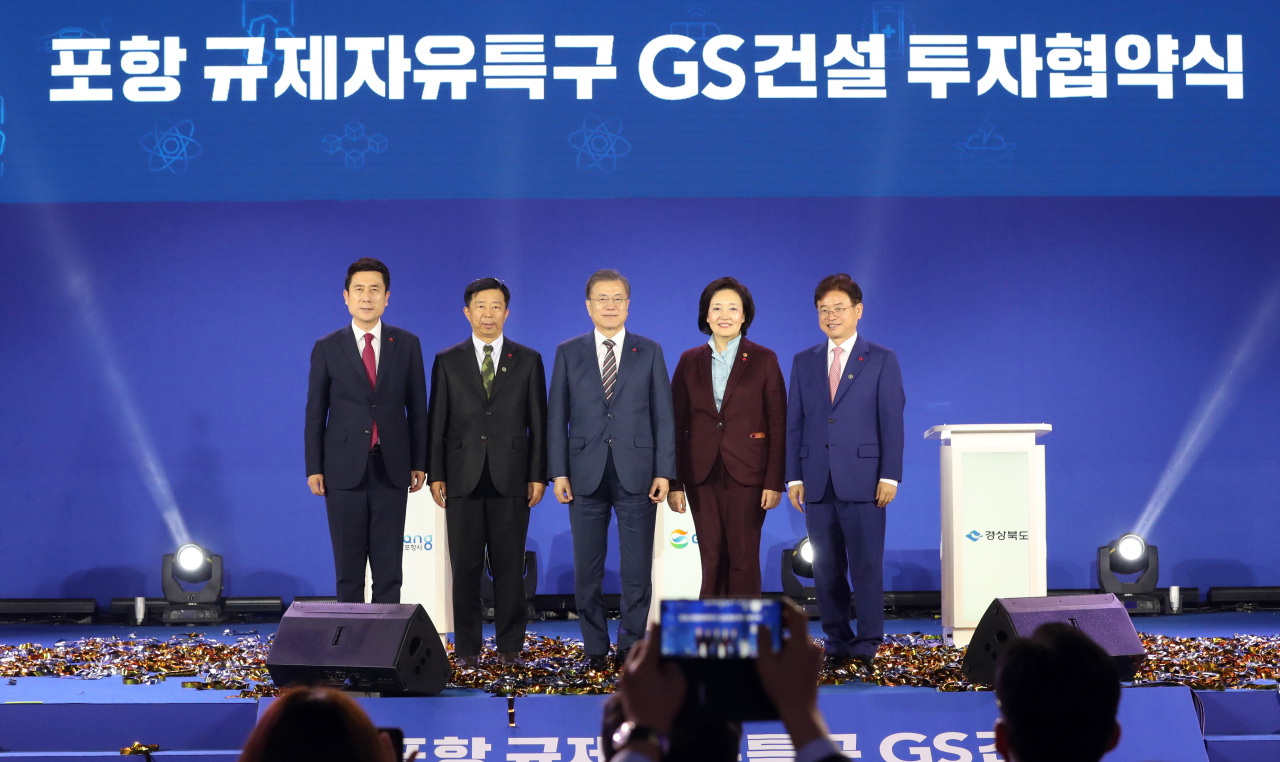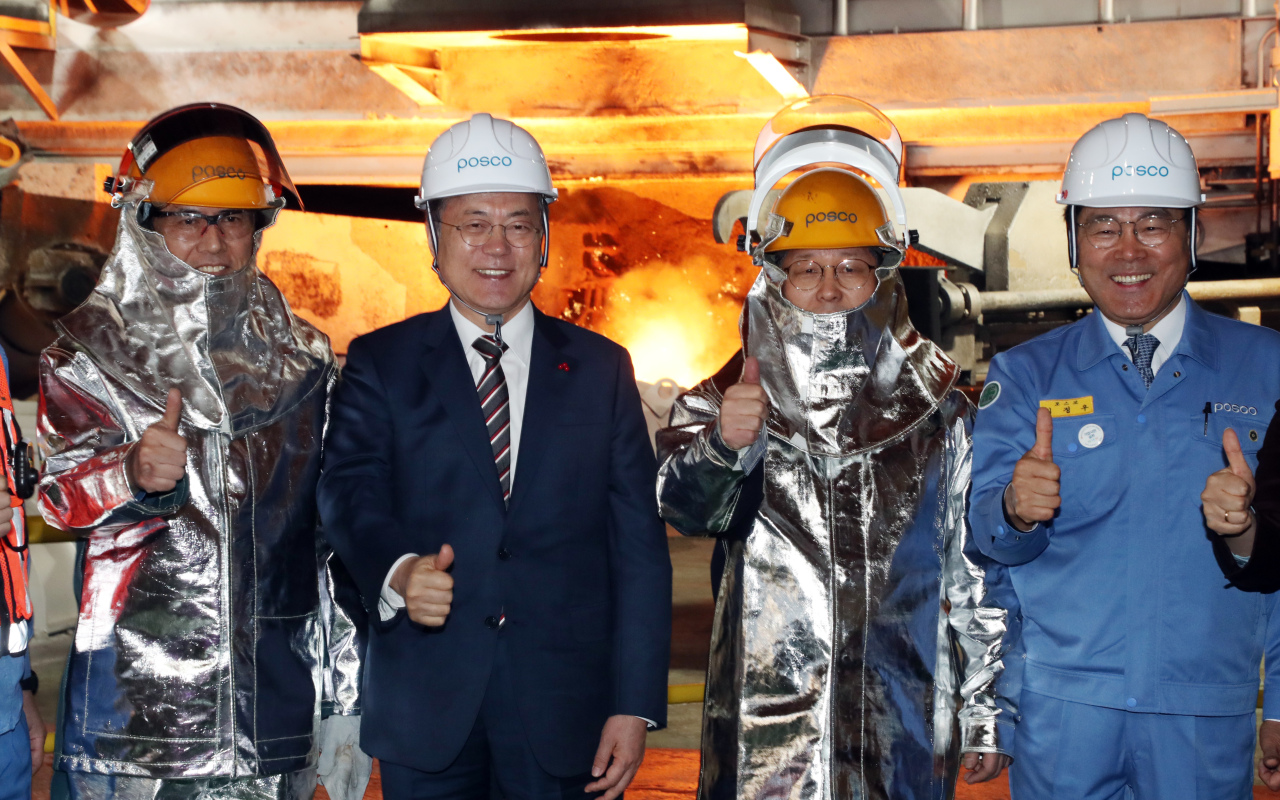President Moon Jae-in visited a special regulation-free district in Pohang, North Gyeongsang Province, on Thursday to highlight the need for bold action to encourage new industries and revitalize the regional economy.
Moon attended an investment ceremony where GS Engineering & Construction and authorities of the province and city signed an agreement for a new battery recycling factory. He also visited a steel mill in the port city operated by the country’s leading steelmaker Posco.
 |
President Moon Jae-in (center), Pohang Mayor Lee Gang-deok (left), GS E&C CEO Lim Byung-yong (second from left), SMEs and Startups Minister Park Young-sun (second from right) and North Gyeongsang Province Gov. Lee Cheol-woo pose at an investment ceremony in Pohang, North Gyeongsang Province, Thursday. (Yonhap) |
During the ceremony, he stressed that the battery industry will become the “rice” of the future and that the battery market would grow to become bigger than memory semiconductors.
“Pohang is a city of great potential, and I am sure that it will pull off a success in the battery industry and contribute greatly to enhancing South Korea’s competitiveness in the ‘fourth industrial revolution’ era,” Moon said in his speech at the ceremony.
GS Engineering & Construction, a leading builder in Korea, agreed to invest 100 billion won ($86 million) by 2022 into constructing a new facility recycling batteries in Blue Valley National Industrial Complex, in the regulation-free district designated in the port city of Pohang.
In July 2019, North Gyeongsang Province was designated as a regulation-free district for the battery recycling industry, and Pohang offered the land to attract investments.
The factory will collect and recycle used batteries, and it is expected to create over 300 jobs in the region, according to Cheong Wa Dae.
Cheong Wa Dae said it anticipates the envisioned facility to serve as the advanced headquarters for the secondary battery industry, capable of taking care of up to 1,000 electric cars annually. It also said the facility would generate annual revenue of 800 billion won in the secondary battery sector from 2022.
In April 2019, the government introduced the regulation-free district system and designated 14 regions across the country for new industries to thrive under conditions with no regulations, and ultimately to contribute to the regional economy, Cheong Wa Dae said.
 |
President Moon Jae-in (second from left) poses for a photo with Posco Chairman Choi Jeong-woo (right) and employees at one of Posco’s steel mills in Pohang, North Gyeongsang Province, on Thursday. (Yonhap) |
After the ceremony, Moon visited a steel mill operated by Posco, based in Pohang.
Moon congratulated the company for being chosen as the “Lighthouse factory,” by the World Economic Forum and encouraged the conglomerate to continue its support for small and medium-sized companies in the country.
Posco was named a Lighthouse factory by WEF in July last year, as a company spearheading innovation in manufacturing.
As part of its smart factory project, Posco said it will inject 20 billion won to support and provide consultations to about 1,000 companies by 2023.
By Jo He-rim (
herim@heraldcorp.com)






![[KH Explains] For Korean automakers, Chinese EVs may loom larger than Trump’s tariffs](http://res.heraldm.com/phpwas/restmb_idxmake.php?idx=644&simg=/content/image/2024/11/14/20241114050537_0.jpg)
![[Graphic News] Tainan predicted top destination for South Koreans in 2025](http://res.heraldm.com/phpwas/restmb_idxmake.php?idx=644&simg=/content/image/2024/11/13/20241113050807_0.gif)

![[Herald Review] Cho Seung-woo takes 'Hamlet' crown](http://res.heraldm.com/phpwas/restmb_idxmake.php?idx=644&simg=/content/image/2024/11/14/20241114050593_0.jpg)